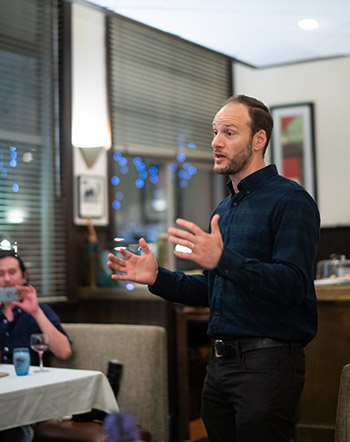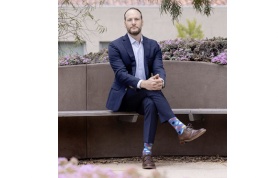
Chesa Boudin has spent his whole life grappling with incarceration and its far-reaching implications. As the founding executive director of Berkeley Law’s new Criminal Law & Justice Center, he sees an exciting opportunity to build on his work of transforming the criminal legal system in profound ways.
“A lifetime of visiting my biological parents in prison and my work as a public defender and district attorney have made clear that our system fails to keep communities safe and fails to treat them equitably,” Boudin says. “I’m thrilled to join the nation’s premier public law school and engage with brilliant scholars and students to drive meaningful change by elevating the lived experience of those directly impacted.”

The center will be a research and advocacy hub to boost Berkeley Law’s public mission in the criminal justice arena. It will help foster research collaboration among faculty members and others, enhance law students’ training and practice opportunities, and strengthen connections between the university and the outside world.
“Since coming to Berkeley Law, I have wanted to create a criminal law and justice center to further advance the important work of our tremendous faculty and clinics in this area,” Dean Erwin Chemerinsky says. “I am delighted to launch the center and that Chesa Boudin will be its first executive director. Chesa was chosen after a national search and has substantial experience across the criminal justice system. He has thought deeply about the system, and I cannot think of anyone better to create and direct this important center.”
Graduate student researchers, student assistants, and visiting scholars will help the center provide support for teaching, research, and practice in criminal legal reform, facilitate a broad range of convenings, and tackle projects to address foundational problems — including structural inequities related to poverty and racism.
The United States confines a greater percentage of its population than any nation, with over 2 million people currently incarcerated and about 5 million more on probation or parole. Studies show that Black men have a 1 in 4 chance of being incarcerated compared to 1 in 23 for white men, Black women are six times as likely to be imprisoned as white women, and ethnic minorities are arrested more often and punished more severely than white people for the same offenses.
A lifetime of experience
Boudin’s parents, former members of the radical political group Weather Underground, spent more than six combined decades in prison for participating in a 1981 Brinks truck robbery that led to the death of two police officers and a security guard. Boudin was 14 months old at the time. His mother was released on parole after being incarcerated for 22 years, his father after 40.
Read more at
Chesa Boudin Brings a Lifetime of Experience to Lead New Criminal Law & Justice Center




